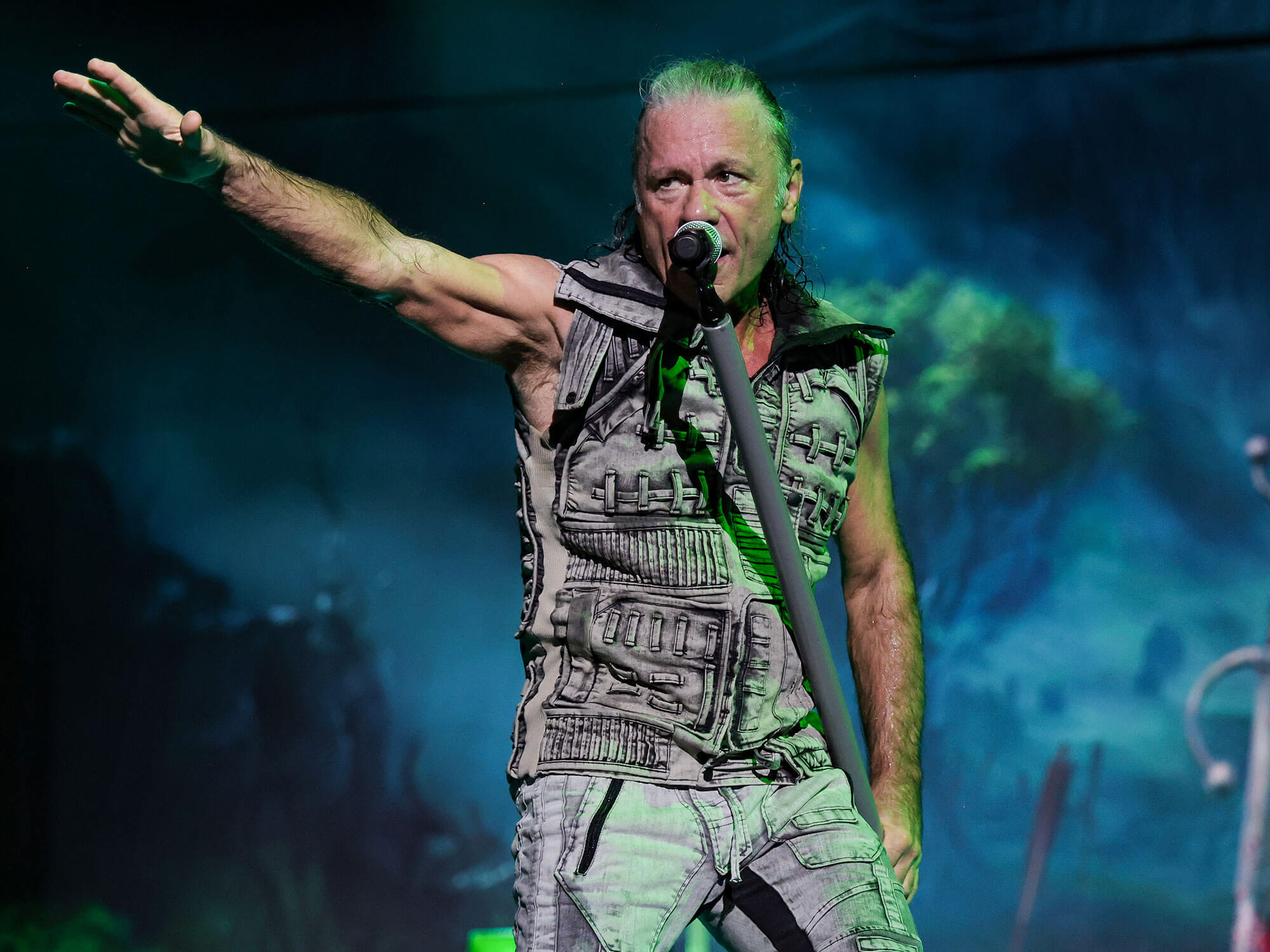Bruce Dickinson, the frontman of IRON MAIDEN, recently talked with Sweden’s SVT about his upcoming solo album “The Mandrake Project,” which BMG is set to release on March 1. The majority of the album’s recording was done at Los Angeles’s Doom Room, with Bruce Dickinson’s longtime collaborator and producer Roy “Z” Ramirez serving as both guitarist and bassist. Drummer Dave Moreno and keyboard virtuoso Mistheria completed the recording lineup for “The Mandrake Project.” Both musicians were included in Bruce’s last solo studio album, “Tyranny Of Souls,” released in 2005.
Dickinson told SVT the following about the lyrical idea for “The Mandrake Project”:
“There’s a lot of kind of not exactly yeah, kind of like meditation on life and death in there, probably ’cause I had a little bit of a too close encounter with it when I had cancer. I didn’t think that changed my view of life and death. People asked me that question after I got better from it, and I was, like, ‘No, no. Easy-peasy. No, no, no. [Laughs] And, yeah no, it did, but not in a bad way. Every day is, like, great. ‘Wow.’ So I try and live in that space.”
During the Q&A part of his January 2022 spoken-word event in Orlando, Florida, Dickinson, who had a throat cancer diagnosis in late 2014, spoke about his rehabilitation. When asked what guidance he would offer to someone about to embark on their cancer struggle, he said:
“Here’s the way I dealt with it… And people will deal with it in different ways. I embraced the treatment. So I went along to see the big radiation machine and I said, ‘Okay, how does this work then? What does it do? And how much are you giving me and where? And how are you making a difference between this one and this one and this one? And you can do what with it? Wow, that’s really cool. That’s amazing. It’s insane, the technology.'”
He continued, “I would say embrace the treatment and always remember the [likelihood]… I don’t know what your cancer is. I don’t know the individual circumstances. I’m not a doctor, so I’m not gonna make any predictions. I can’t do anything like that, nor would I, ’cause it’s very private. But I have to say that the therapies that people are coming up with now are so on the edge and successful that you really do stand a very good chance. ‘Cause half of us are gonna get cancer, and it’s not a death sentence anymore, and you can deal with it. And the things they have to do to your body to get rid of it are getting better and better and better as we go down the line. They did some nasty things to my body. I’m lucky I’m completely clear of it and everything.”
Bruce added, “I only really talk about it when I come to do these shows ’cause people want to know, I quite enjoy talking about it because you kind of demystify it a little bit for people. It’s a scary thing.”
Based on data from 2016 to 2018, 39.2 percent of men and women will receive a cancer diagnosis at any point in their lives.
Healthline reports that between 1991 and 2019, the US cancer death rate decreased by around 32%, or from roughly 215 deaths per 100,000 people to approximately 146. Lung cancer, which continues to be the nation’s largest cause of cancer-related mortality, has made significant success in its fight.
Following radiation and nine weeks of chemotherapy, Dickinson, who had two tumors one the size of a golf ball on his tongue and the other in a lymph node on the right side of his neck was given the all-clear in May 2015.
Bruce previously stated to iNews that he intended to discuss his fight with cancer in his 2017 book, “What Does This Button Do?” to bring attention to the illness, which frequently strikes those with little to no history of alcohol or cigarette addiction. After receiving therapy, the disease-free survival rate for patients with HPV-related oropharyngeal cancer is between 85 and 90 percent after five years.
After receiving a cancer diagnosis nine years ago, Dickinson discussed how his singing voice has altered in an interview with the Swedish TV program “Malou Efter Tio”.
He said, “[It’s] a little bit different, Two things are slightly different. One is my saliva, which obviously lubricates your throat a little bit, is a bit less than it used to be. Although, back ten years ago, if I had the same cancer, I wouldn’t be making any saliva. But now, I’m probably 70 percent, which is great. Thanks very much, everybody upstairs. [Laughs] And the other things is that I think that the shape of possibly the back of my tongue, which forms vowel sounds and things like that, might have changed shape slightly, because, obviously, it had a big lump in it, and the lump’s gone. So maybe the surface has changed shape. So I notice a few differences. Funnily enough, the top end of my voice is maybe even a little bit better than it was before. [Laughs]”
Dickinson said that after receiving radiation and chemotherapy, his doctors gave him “the all-clear” after an MRI.
He said, “I was amazed, My cancer was a 3.5-centimeter tumor in my throat and a 2.5-centimeter one in my lymph node, and that was the one that I could feel that was the secondary one. But I did 33 sessions of radiation and nine weeks of chemo at the same time, which is fairly standard therapy for it. And it was gone. And I said to my oncologist: ‘What do you mean it’s gone? Where has it gone?’ And he said, ‘Well, your body just gets rid of it.’ A body is an amazing thing.”

5 thoughts on “IRON MAIDEN’s BRUCE DICKINSON Says His Cancer Battle Changed His View Of Life And Death”